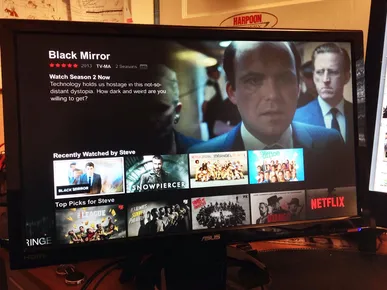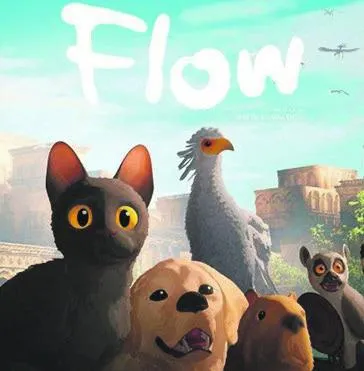
Netflix's Black Mirror: looking at screens versus looking at Christ

Niv Lobo
W.H. Auden, the 20th century poet, once said: "Every man carries with him through life a mirror, as unique and impossible to get rid of as his shadow." It’s a striking metaphor, describing the personal impact of how we see ourselves.
Auden proposes a "parlour game for a wet afternoon — imagining the mirrors of one’s friends." But in the 21st century, we don’t have to imagine.

letter from Latvia
The gospel benefit of pulling together

John Woods
Over the last month or so, the Latvian Men’s International football team has played England at Wembley. The match was a one-sided affair with Latvian parking the defensive bus and spending most of their time in their own half trying to keep England out. They did well to restrict England to three goals but the difference in depth and quality was plain to see.
The other example of Latvia punching above its weight came at this year’s Oscars ceremony. Flow (Latvian: Straume) is a 2024 animated adventure film directed by Gints Zilbalodis, written and produced by Zilbalodis and Matīss Kaža, which won the best animated picture category. It also won in the same category at the Golden Globe awards in January. The film was made on a budget of less than $4million, which is tiny compared to the budgets of giants like Disney, Dreamworks and Pixar, all of whom were beaten by this lo-fi animated film from Latvia.

culture watch
Are we too quick to demonise screens?

Rebecca Chapman
Too much time on screens can provide something of a health-hazard. Physically, emotionally, even arguably spiritually.
A huge number of column inches over recent days have been devoted to the perils of the screen-based online world for young people especially, following the release of Netflix’s Adolescence. Meanwhile, YouGov data released in March revealed that in the last year, the median Briton has only read or listened to three books. A staggering 40% of the public had not read or listened to a single book in that time. This perhaps becomes less surprising if you consider that in England, 18% of adults aged 16 to 65 – so 6.6 million people – have “very poor literacy skills”. If you were looking to increase Biblical literacy, you wouldn’t start from here.
'Stranger Things' and endings
Over the Christmas holidays, Netflix released the final series of Stranger Things.
Since the first series in 2016, we’ve followed the outbreak of a dark, supernatural force in Hawkins, Indiana, the machinations of the US government and the military, and the children and teenagers who band together to confront it all.